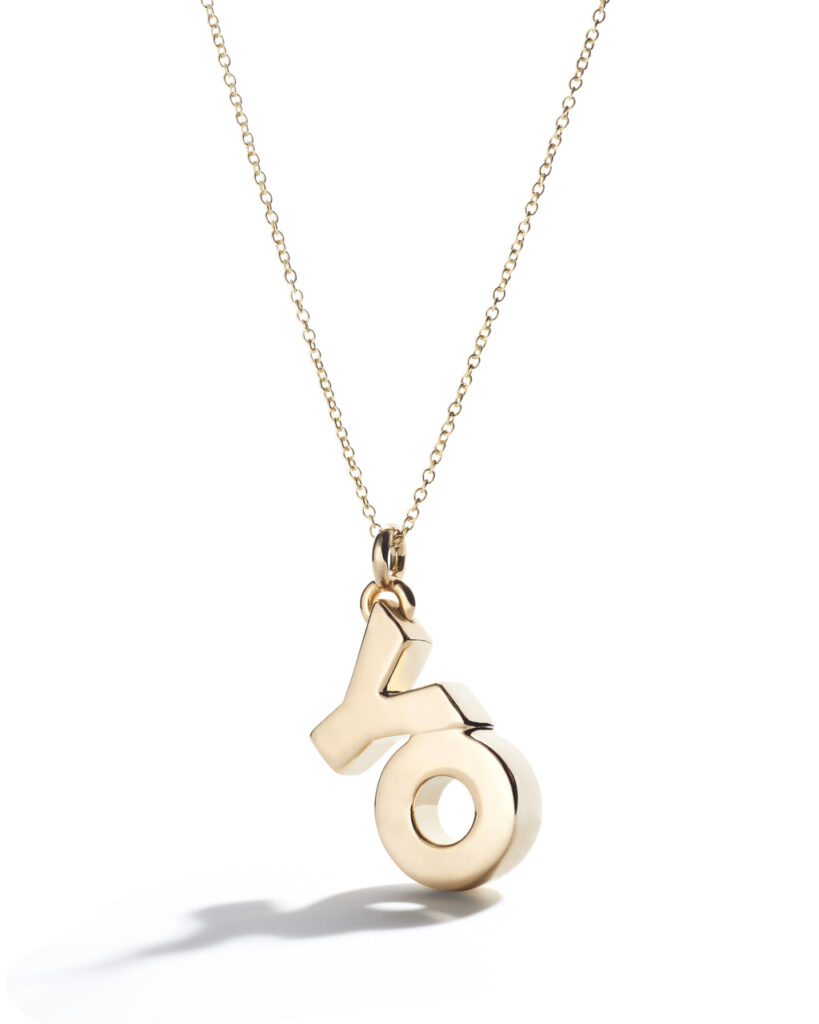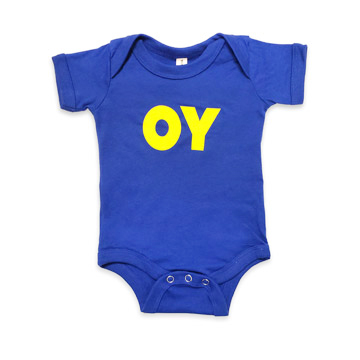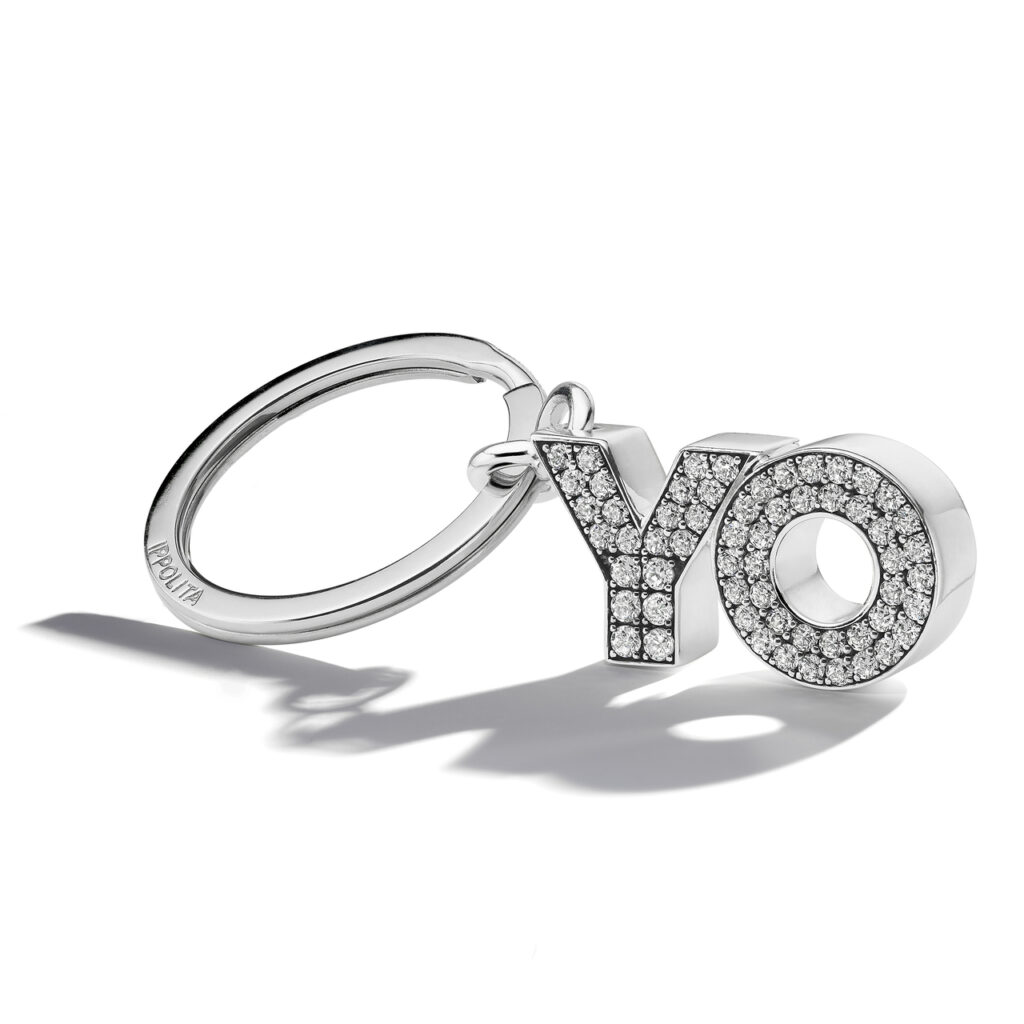News + Blog
Art: A Vehicle of Change
We spoke with famed New York artist Deborah Kass about all things activism, licensing, and more.
You say you want a revolution? The question, posited by the Fab Four on their iconic 1968 track “Revolution,” is nothing if not perennial. Evolution is inevitable. Revolution is humanity’s response, and throughout history artists have been our messengers, questioning cultural mores and capturing societal unease with a poignancy and beauty that helps to unite, instead of divide. Our very special ARS member artist and social activist, Ms. Deborah Kass, has long created works to express her politics, highlight social inequalities, and give voice to the voiceless. And Kass manages to do it all with a sense of humor and ease, literally spelling out positive messages in her text-based works and sparking joy with her cheerful color palettes and vibrant neons.
The Beatles continued to croon, we all want to change the world. With an artist like Deborah Kass in our midst, we just might stand a chance.
ARS: Vote Hillary, 2016, was a contemporary take on Warhol’s Vote McGovern, 1972. When people think of Warhol, I think it is fair to say that for the most part they do not think of him as an ‘activist’ artist, although a great many things that he did might fall within that category today. Do you believe that all art, or at least all real art, is inherently a gesture of activism?
DK: Not really. Art is primarily self-expression which is a human need. So is politics. Combining them is some artists’ self-expression, mine for instance, but not all.
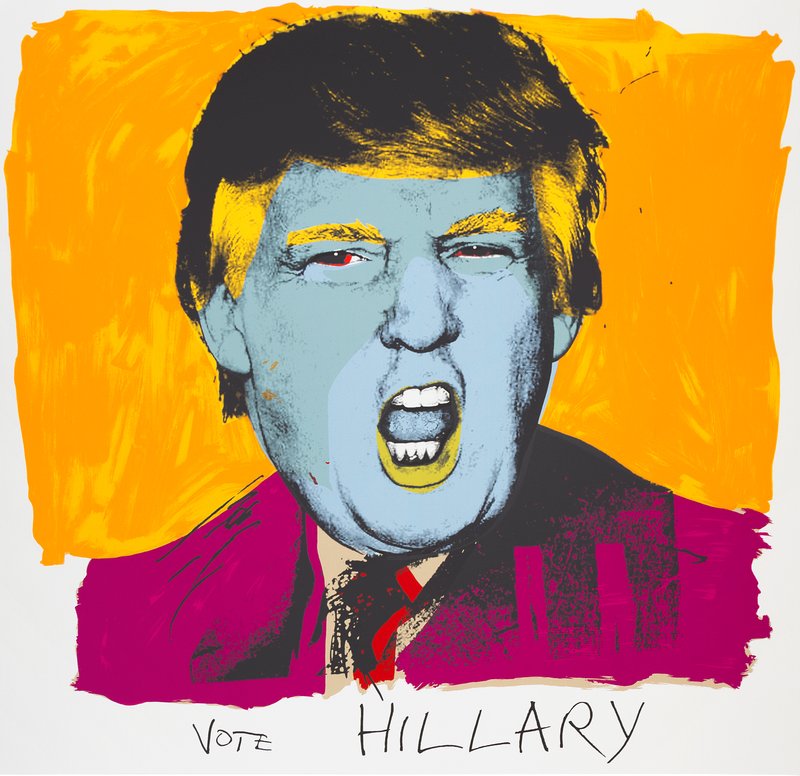
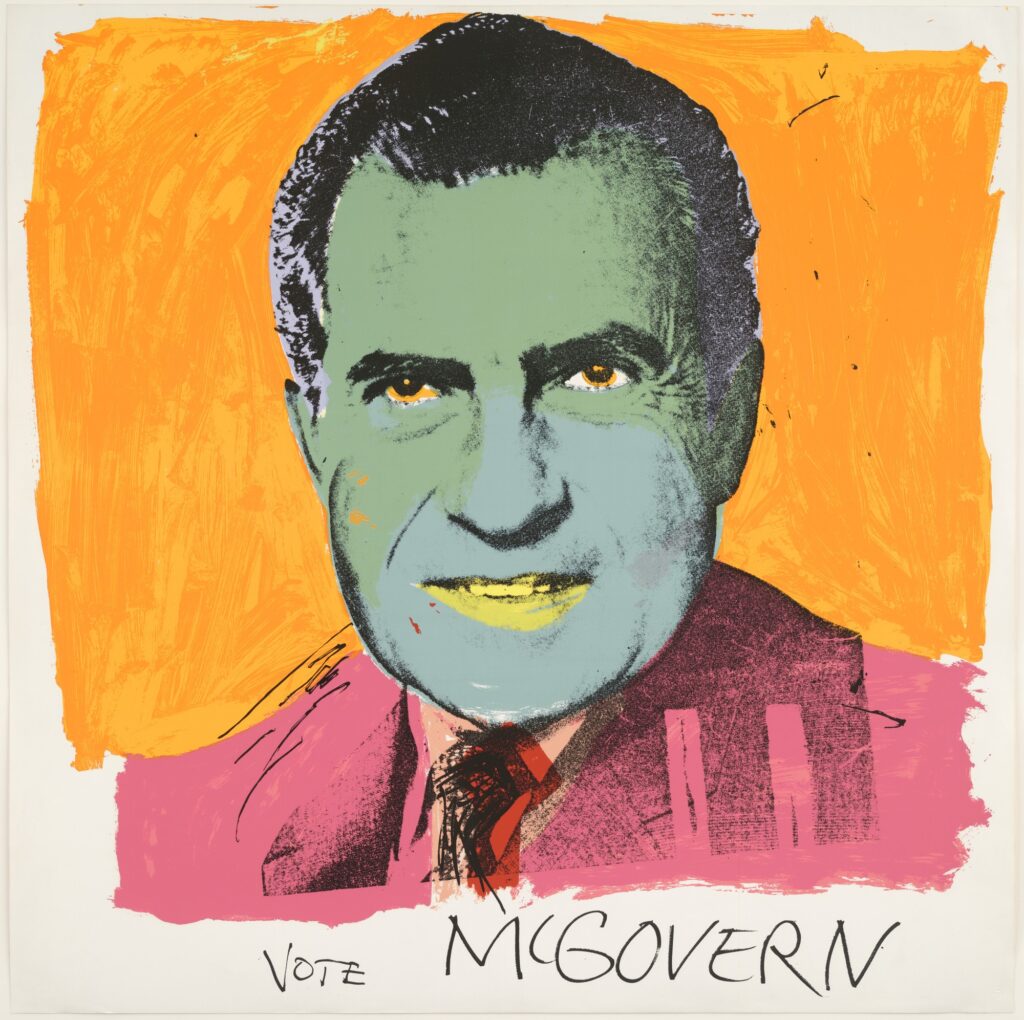
Right: Andy Warhol, Vote McGovern, 1972 © 2020 The Andy Warhol Foundation for the Visual Arts, Inc. / Licensed by Artists Rights Society (ARS), New York
ARS: It has been written that Warhol’s work, like yours, depicts the politician in a sort of grotesque manner. But this doesn’t undermine the fact that both works are attractive. Vote Hillary is bright and poppy and for lack of better words cheerful. Do you believe that art owes a fidelity to something that attracts us? And moreover, do you think that activist art can be more successful if it maintains an aesthetic please without compromising its message?
DK: Form is the vehicle in which to deliver content. I think of the formal qualities of what I make as high level craft and form of seduction. That coupled with the social and political makes the kind of art that interests me enough to do it.
ARS: In recent weeks, your work OY/YO has quite literally been at the center of a movement, located in front of The Brooklyn Museum where thousands have gathered in recent months for protests (see image below). How does this work fit into the conversation? And if it does, is it in the way that you had foreseen/ intended?
DK: I have always thought of OY/YO in terms of community and communities. It speaks in many ways to so many different kinds of people. To have the piece be included in this out pouring of resilience, visibility, love and power at the Black Trans Lives Matters and Juneteenth rallies was overwhelmingly moving and thrilling. Since I couldn’t be there myself (at risk plus a broken toe) I felt like the best of me was there. It made me weep.

ARS: Let’s talk about licensing for a second. I think lots of people are under the impression that ‘art as activism’ and ‘art as merchandising’ are somehow inherently opposed to one and other. But that isn’t really accurate, is it? How do you reconcile the two, being an ‘activist artists’ and a proponent of licensing your work (if indeed you even feel the need to reconcile)? Perhaps this is a stretch, but might it be fair to say that licensing work is a form of ‘activism’ on the part of the artist in regards to safeguarding their craft and securing a livelihood?
DK: Licensing work for consumer items might be considered a form of activism if activism is inherent in the work. If you have something to say, it’s another way to get the word out. That’s why political campaigns have merch. That is why every campaign now has a store attached on its website. I sleep in Stacey Abrams, Elizabeth Warren, Kamala Harris tee shirts. I have endless Hillary tees and merch. But just to be clear, I have made barely any money from licensing. I aspire to a revenue stream from merch. To quote one of my sheroes, Barbara Kruger: You make history when you do business.
ARS: OY/YO has been used for merchandising on multiple occasions What does merchandising your work mean to you? What do you think the benefits of merchandising one’s work can be? When it comes to activist art in particular, do you think it helps to disseminate a message?
DK: Not everyone cares about art or thinks about it. But everyone needs a coffee cup or a tee shirt. The democratizing effect of merchandising isn’t of interest to everybody but it is to me. It is a great way to disseminate content. Not many people can afford art, but they can afford a keychain. And how much do I love to see a baby in an OY/YO onesie?
